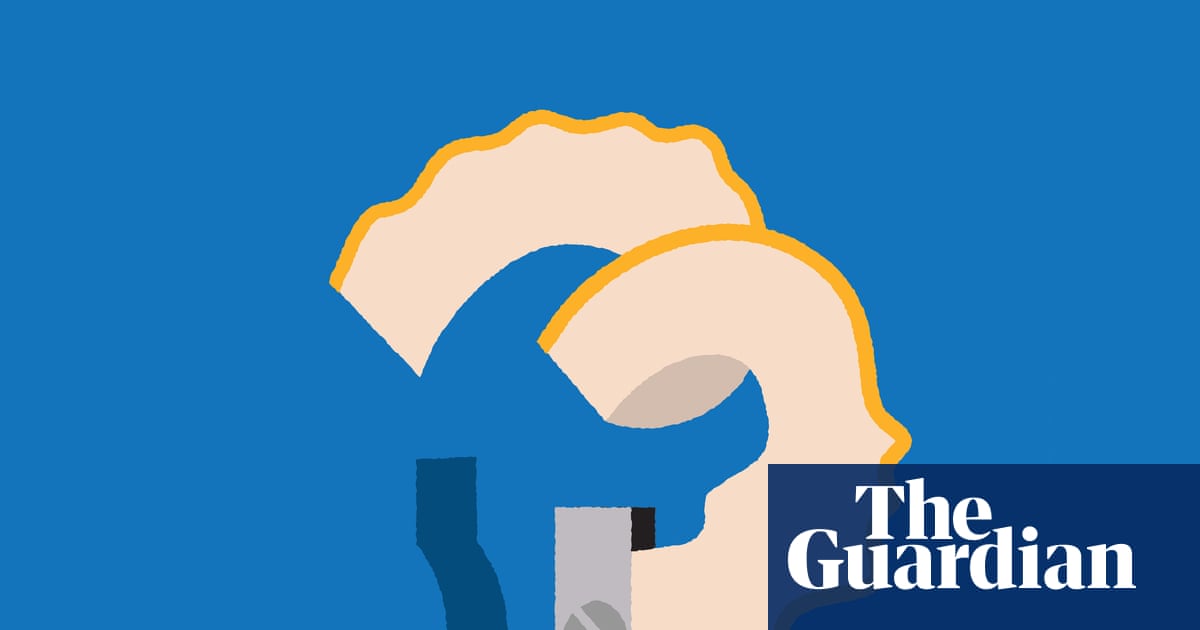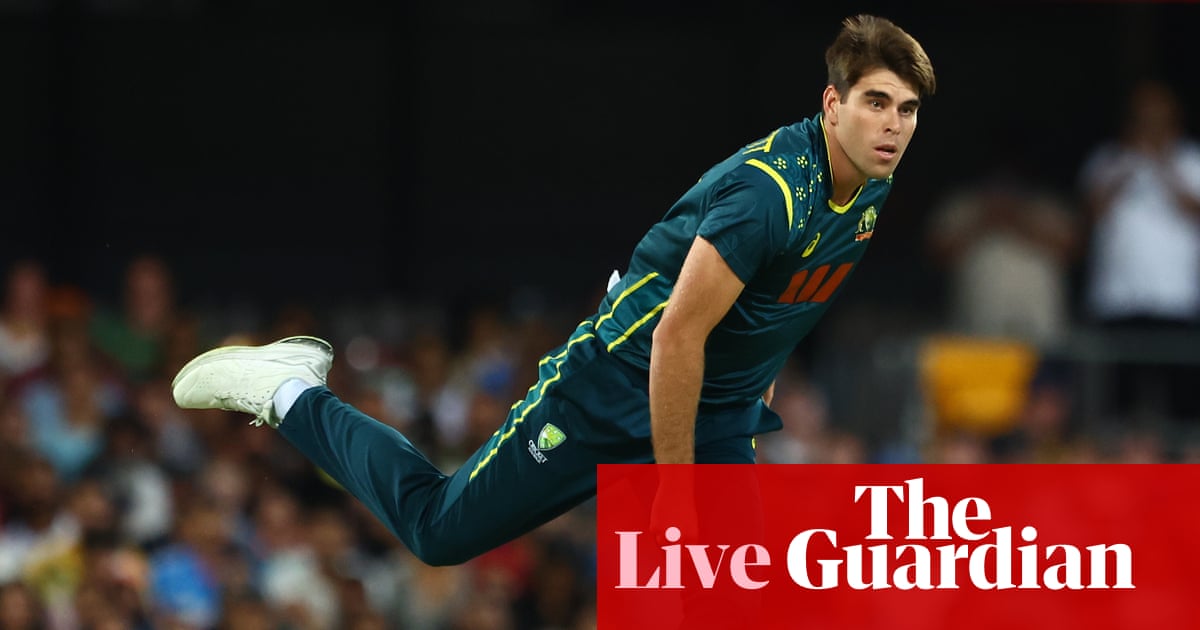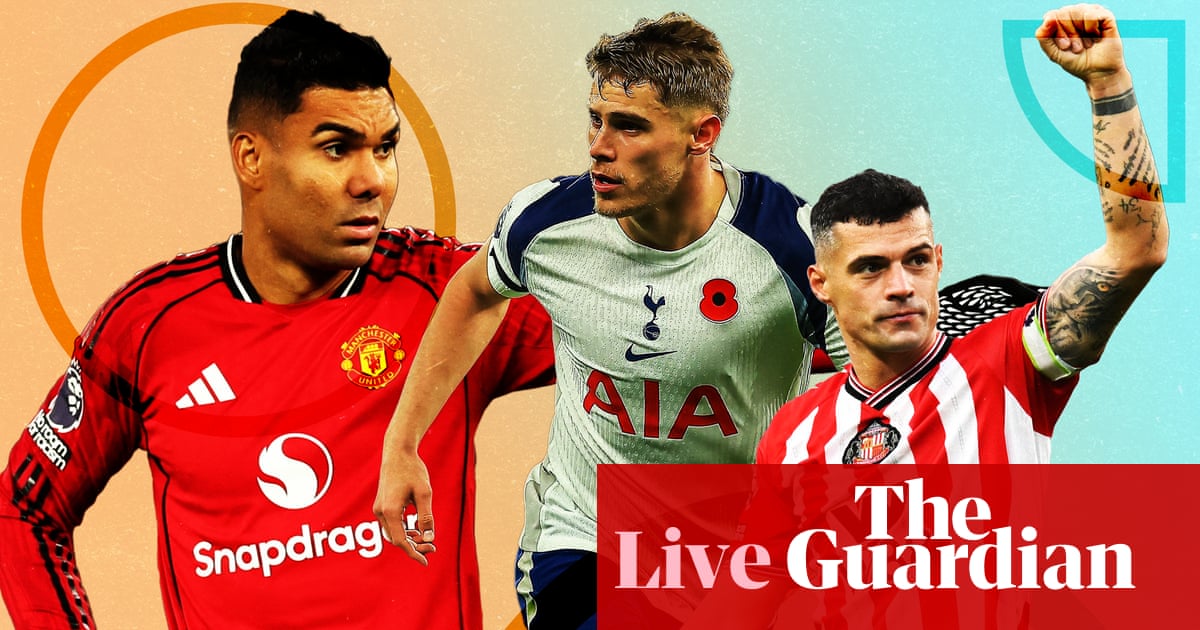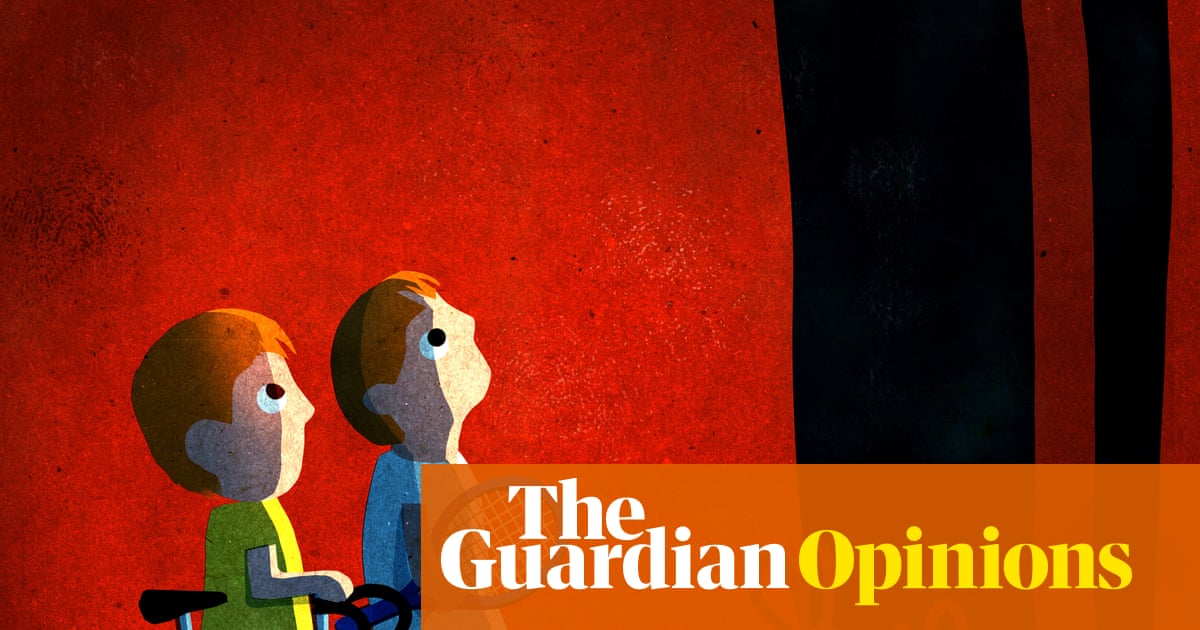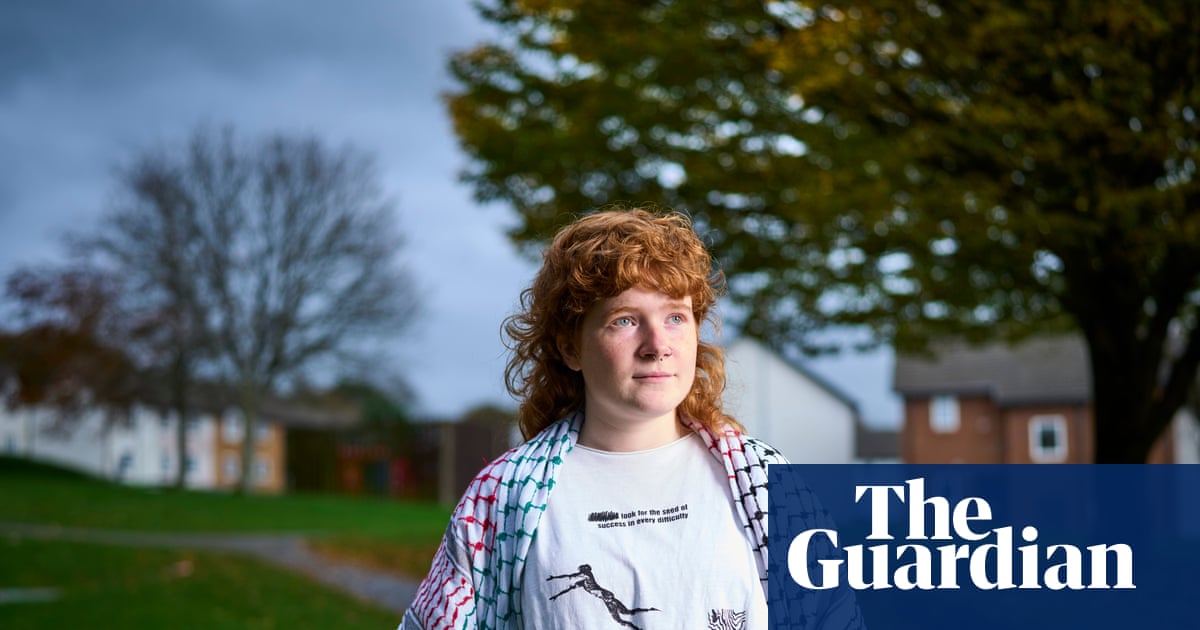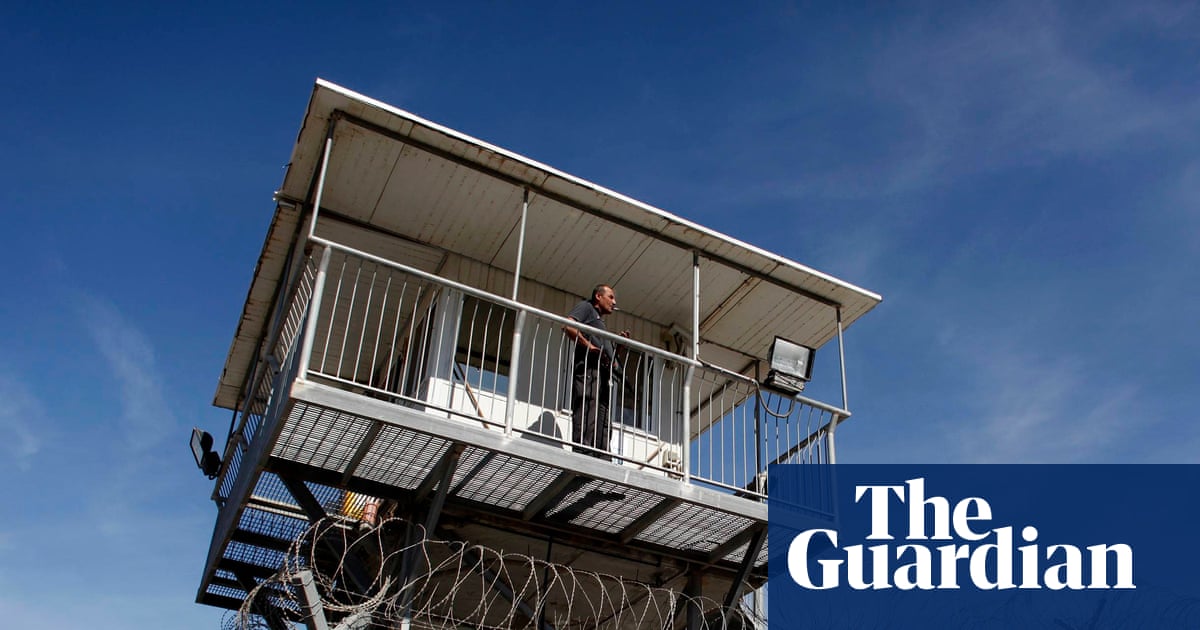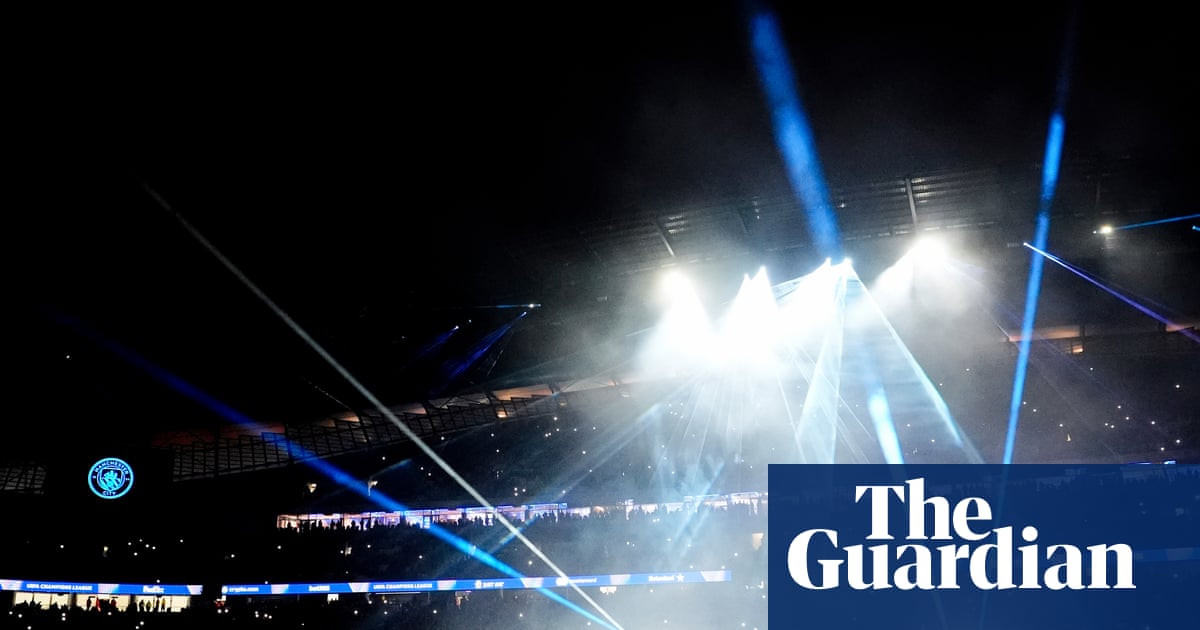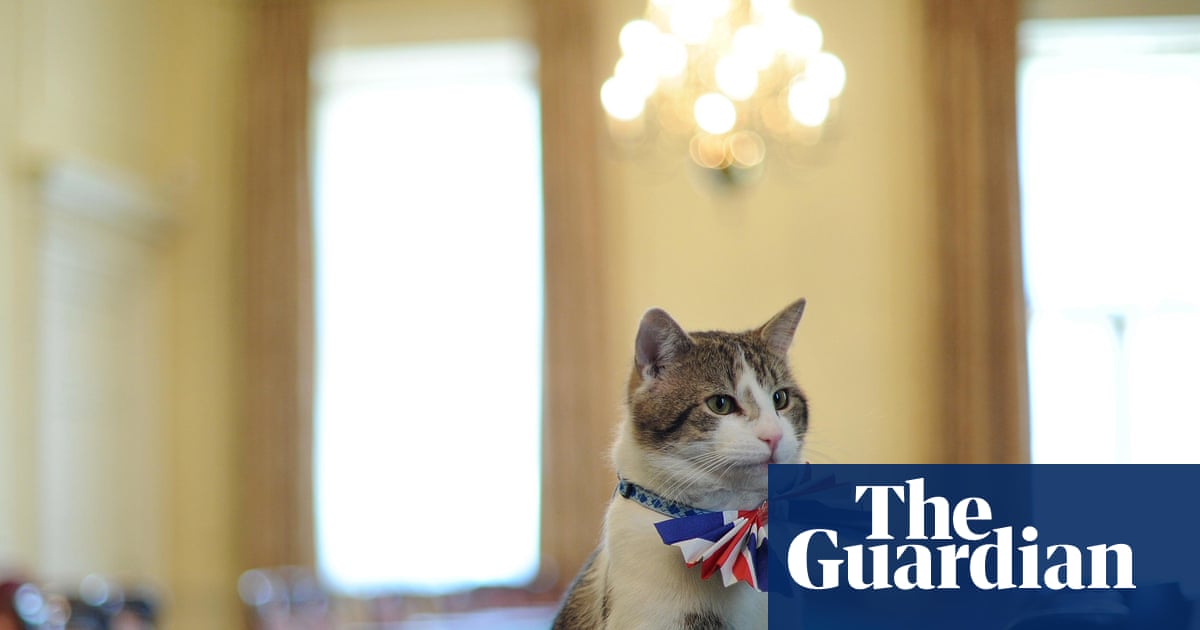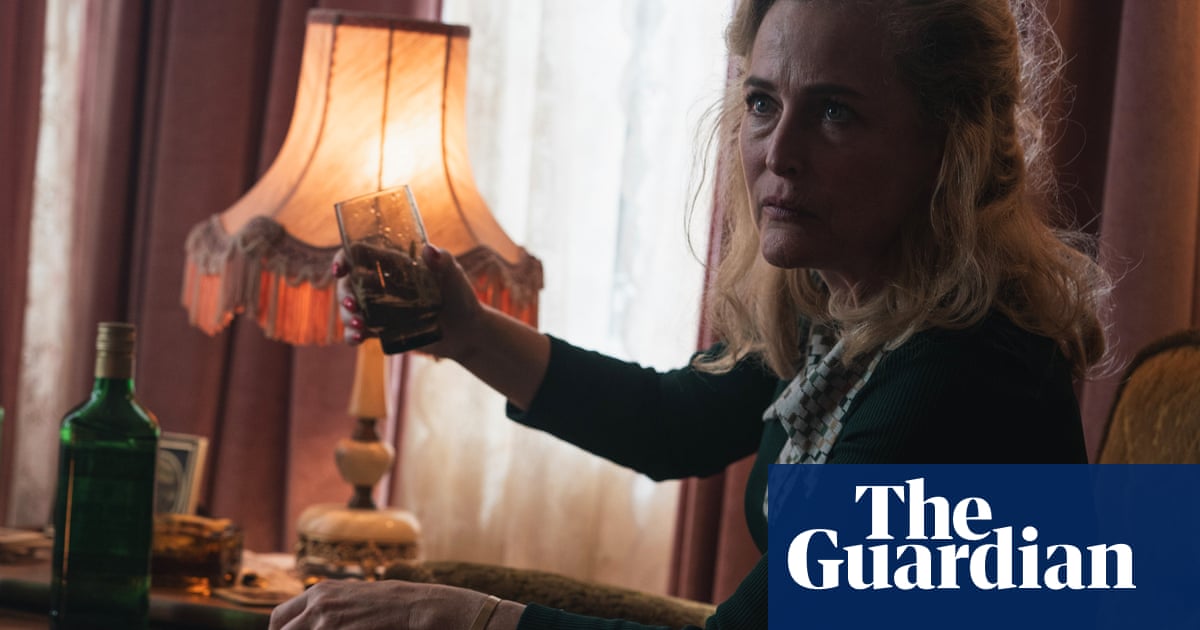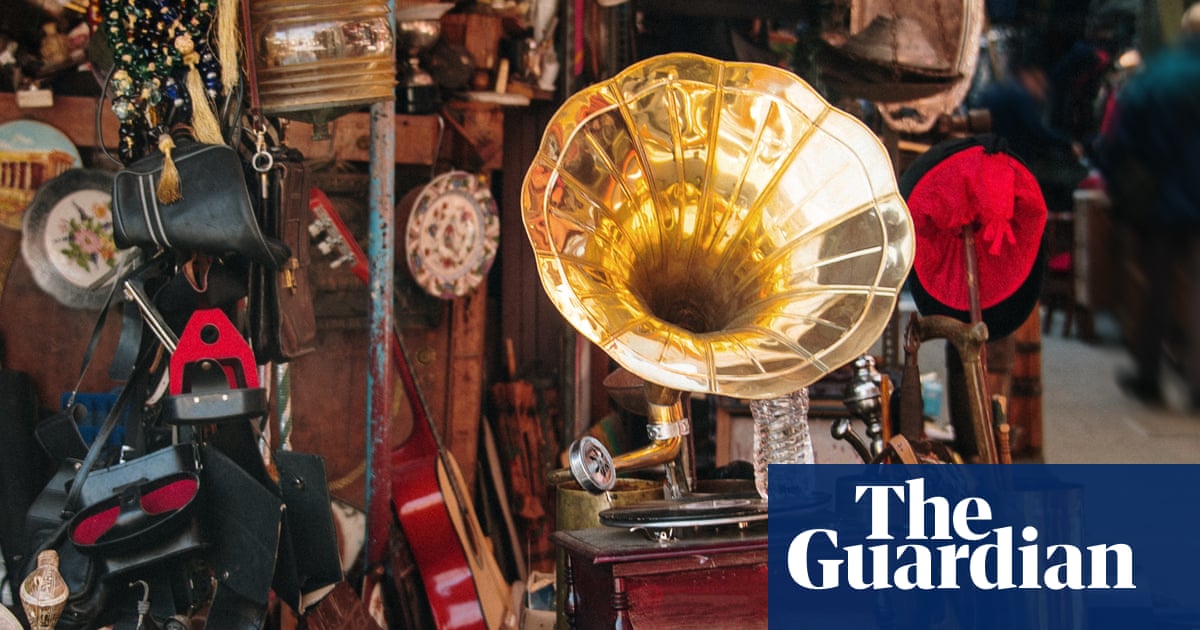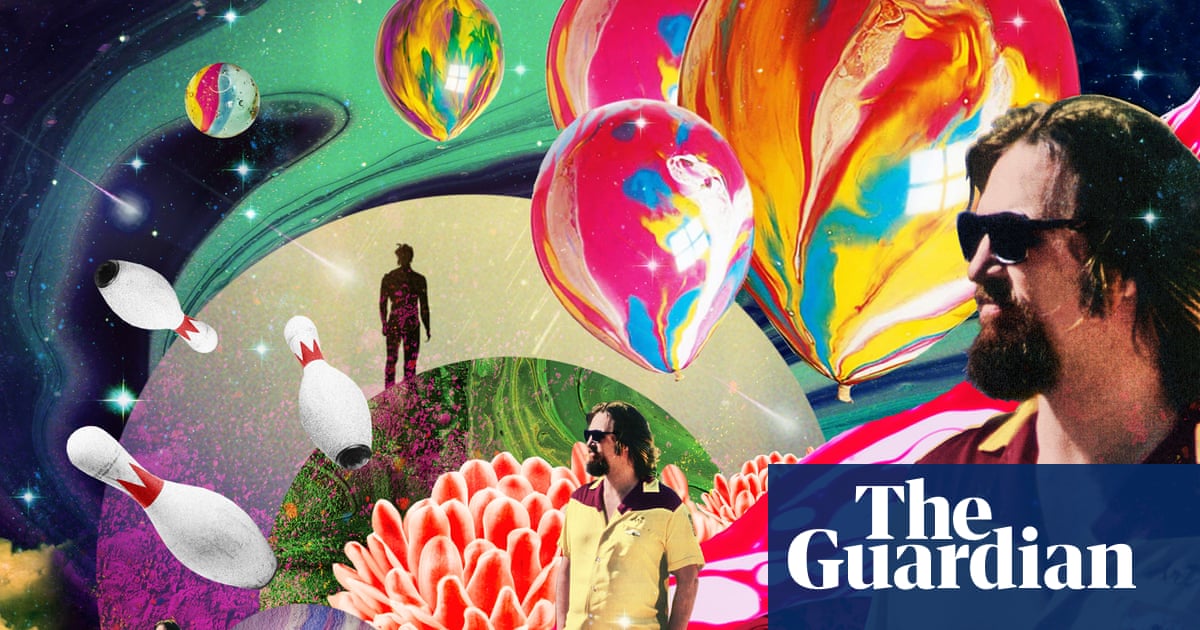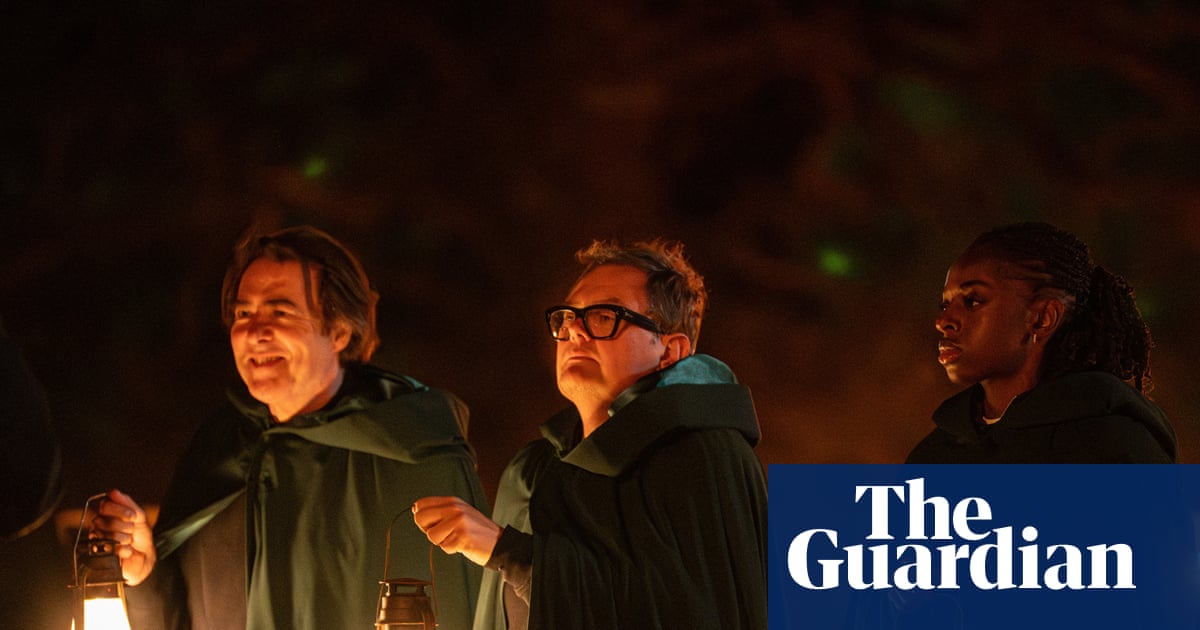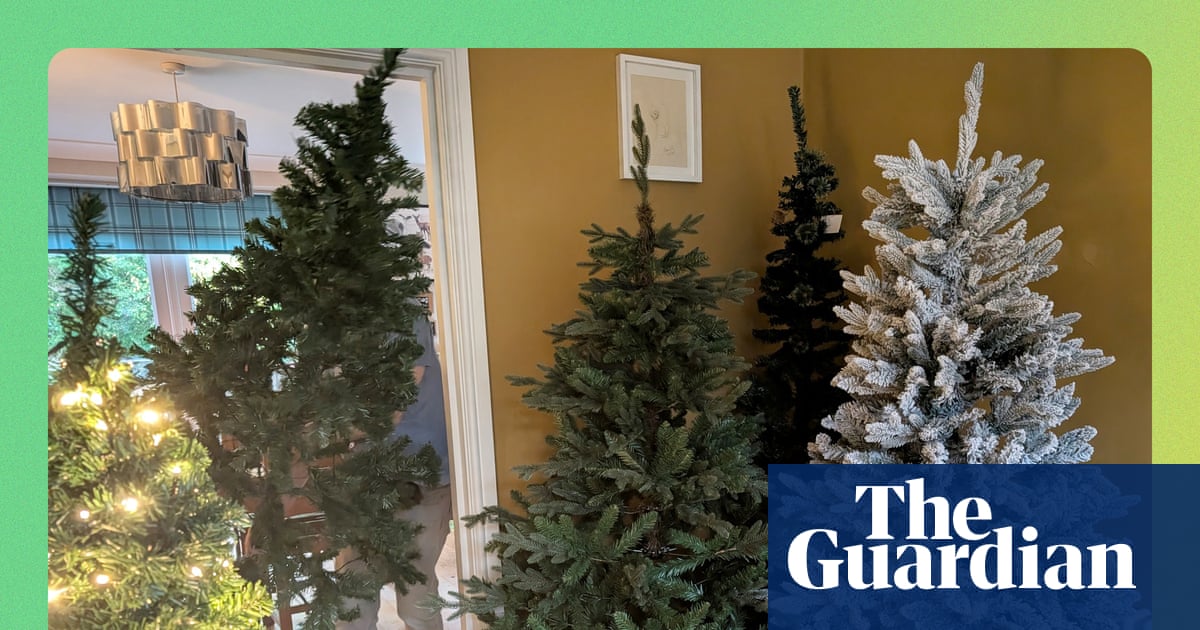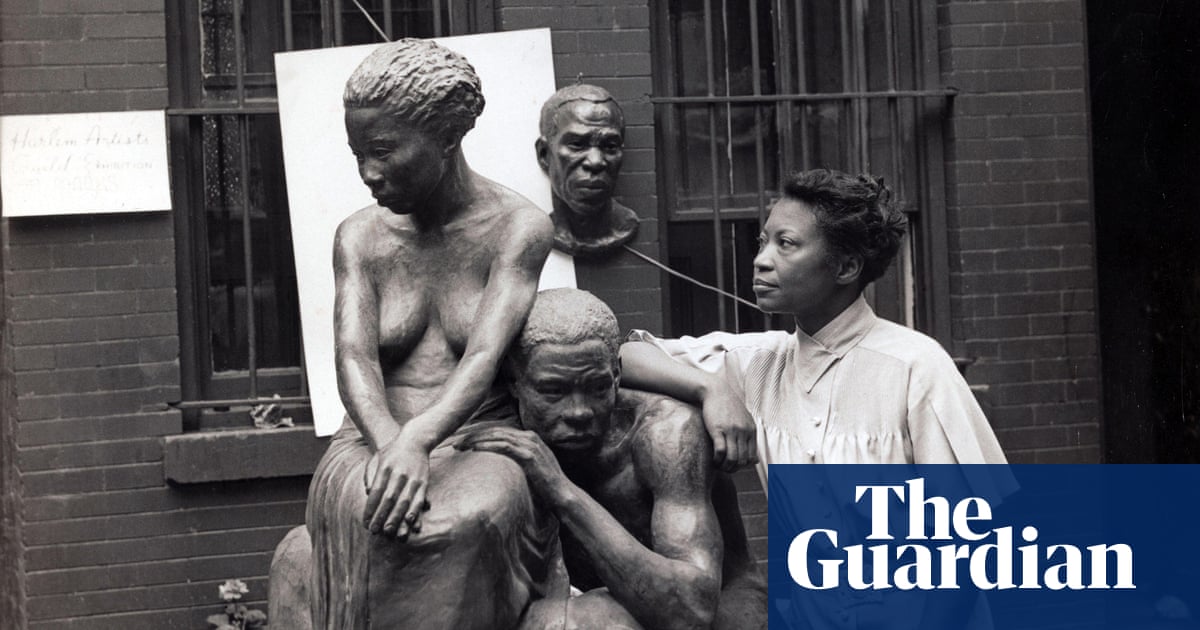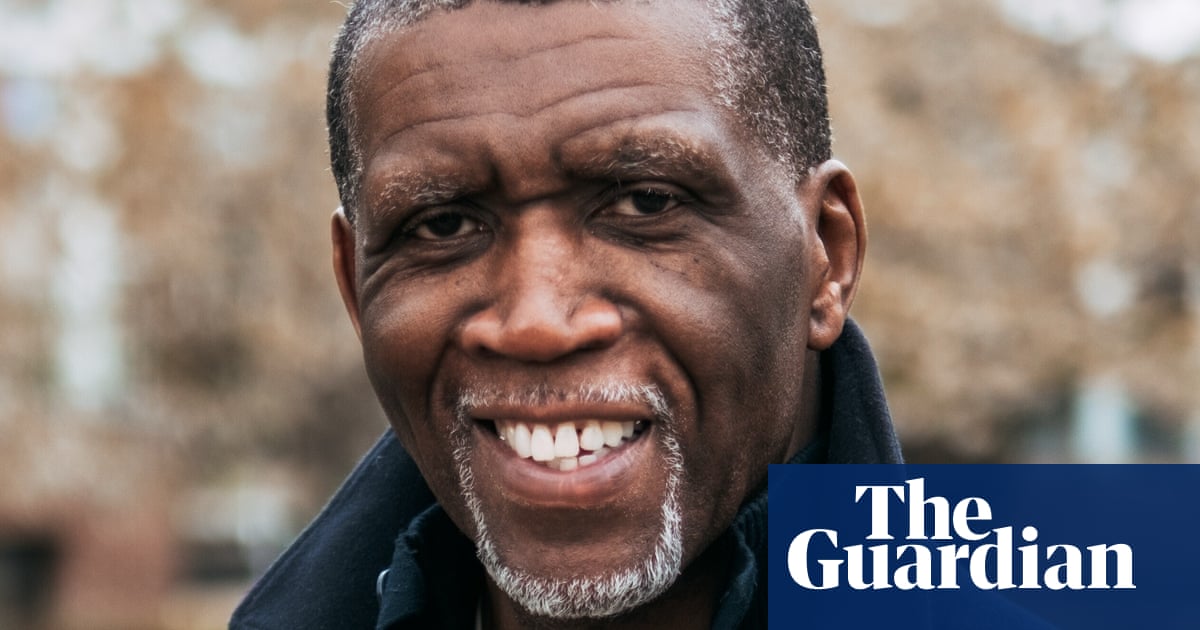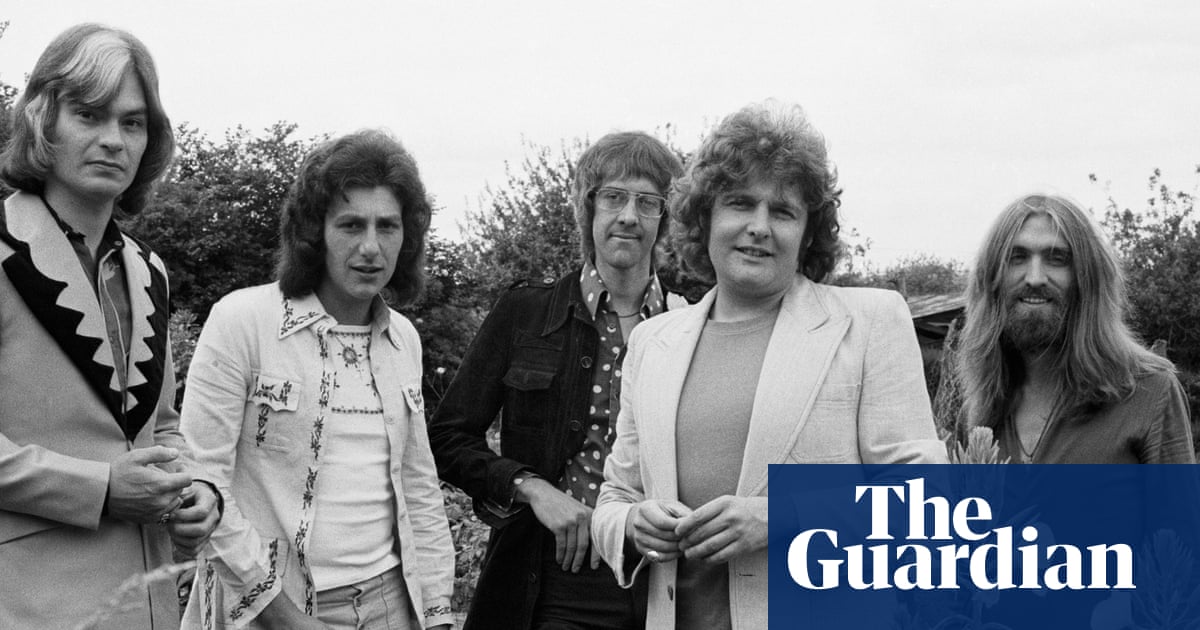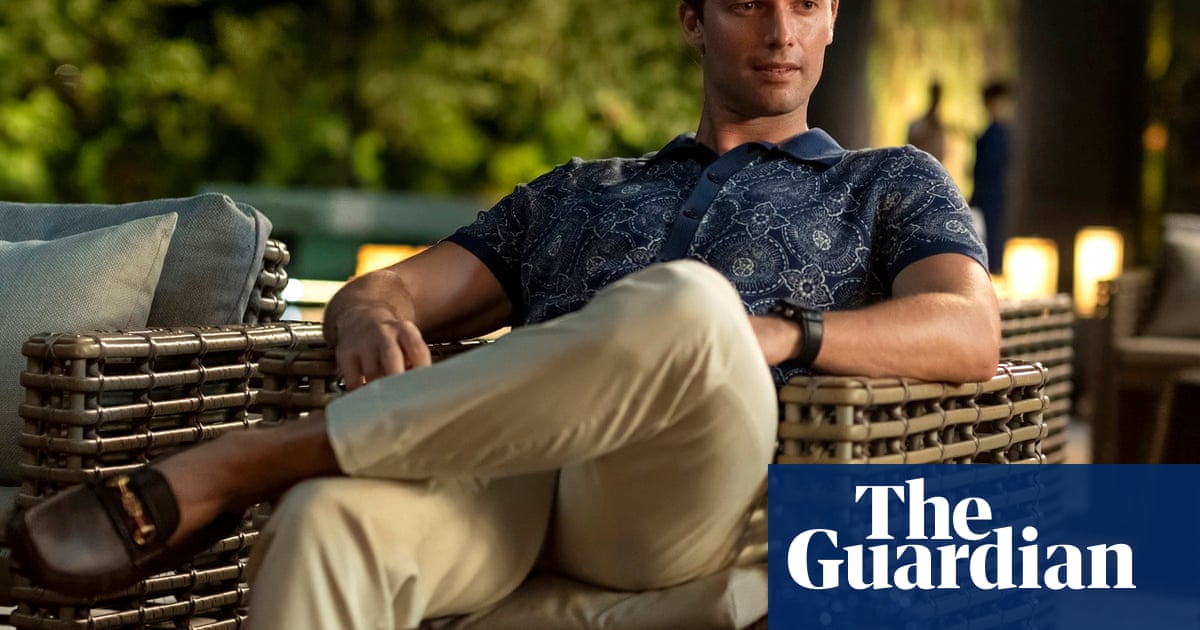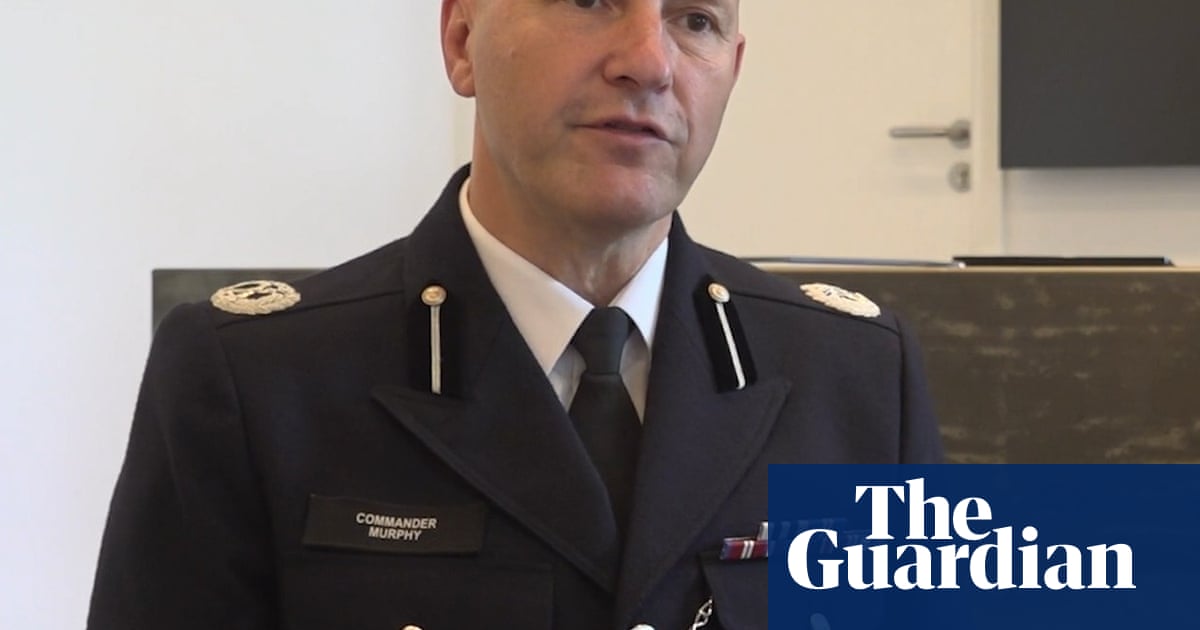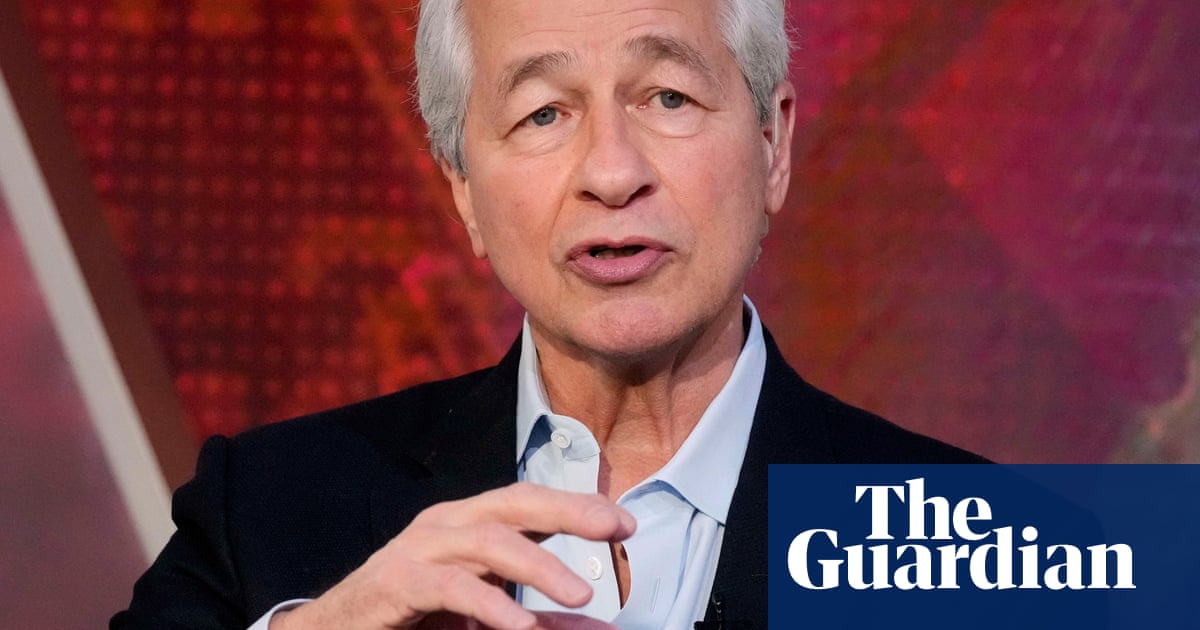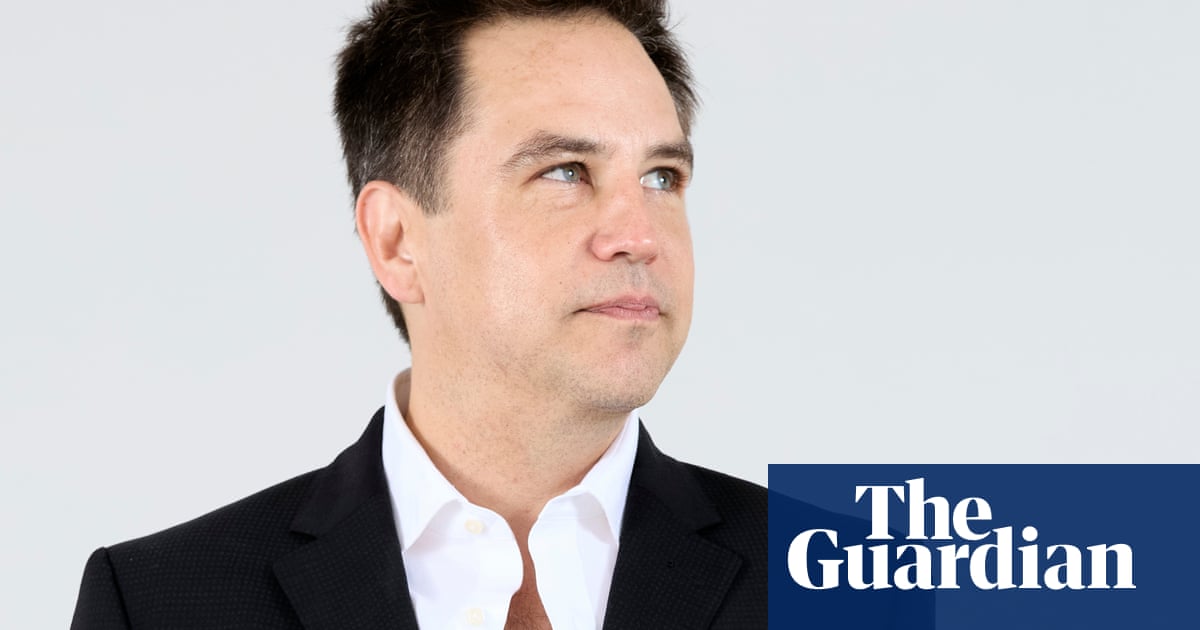‘Welcome to the best thing we’ve ever written,” jokes Kingfishr lead singer Eddie Keogh, in a video recorded in a studio in October 2024, before he knew just how right he was. Keogh, flanked by bandmates Eoin “Fitz” Fitzgibbon on guitar and Eoghan “McGoo” McGrath on banjo, reads from his phone as he lends his chesty baritone to the just-written chorus of Killeagh: “They’d go rarin’ and tearin’ and fightin’ for love / For the land they call Killeagh, and the Lord up above / Kill-la la, la la la la la la la la la / For the green and the white I adore / For the parish to last ever more.”
It has since spent 18 weeks in the Irish Top 10, gone four-times platinum, and become the first traditional, folk-leaning song to see this level of success since The Fields of Athenry was a hit for numerous artists in the early 80s. But the trio wrote Killeagh in 20 minutes: “It literally could not have been more of a slapped-together job,” says Keogh.
Last summer, Fitz was back home in his east Cork village, having a drink with his friend and former hurling coach Phillip “Yank” O’Neill (so-named “because he tried to go to America once”, Fitz explains). All the other teams round here, said Yank, have a song to sing in the changing rooms when they win. We don’t. You’re in a band. Write a song for Killeagh.
Fitz says playing hurling for Killeagh GAA club for 20 years was “the biggest thing in my life, the only thing really” before the band took off in Ireland: they broke out in 2022 with their poppy breakout singles Eyes Don’t Lie and Flowers-Fire. His aunt Mary is the club’s secretary, his uncle Moss played for them, his grandfather Tom was their president and also a player. The junior team features Fitz’s brother Cathal, and is coached by their father Ger.
Fitz said he would write a song if the juniors got to an east Cork final in 2024. In his head, “it was not going to happen. Killeagh haven’t been in the final since 2001, there’s no way they’ll get to a final this year. And lo and behold, October arrives and they get to the final, and Yank texts me almost immediately.”
Kingfishr were recording their debut album at the time, which is now titled Halcyon and set for release in August. The band, who started making music together as a way to pass the time during lockdown-afflicted degrees at the University of Limerick, were in a decent place – they had supported Bruce Springsteen and Dermot Kennedy, and were booked to play a few 5,000-capacity venues in Ireland over the summer. But what was about to happen in that studio would lead, Keogh says, to “conversations about next year’s venues that are hard to make sense of in your brain”.
While McGoo was laying down some moody banjo stuff for the album, Fitz and Keogh turned to their hurling song. “We just ran off for 15, 20 minutes,” Fitz says, “and I started rattling it out.” They wrote about local spots the River Dissour and Glenbower Wood. “Thinking nothing of it because it was all a bit of a joke. Then we showed it to McGoo, who said: ‘What if instead of la la la, it’s Kill’ la la?’ And sure, the three of us were screaming and shouting: this is the greatest thing ever!”
The song is a heart-on-sleeve tribute to the sport of hurling and the focal point it provides for the people of Killeagh – and, by inference, communities like it all over Ireland. The first time it reached a crowd, it wasn’t sung by the band, but the Killeagh junior hurlers, who went on to win their final. A few days later, despite some reluctance from Fitz – who viewed the song as “a pisstake” and says it took him “a long time to come round to the idea that it was about more than just my hurling team and the river that flows through my village” – the band recorded it, and it was released in December as a B-side on their single Bet on Beauty.
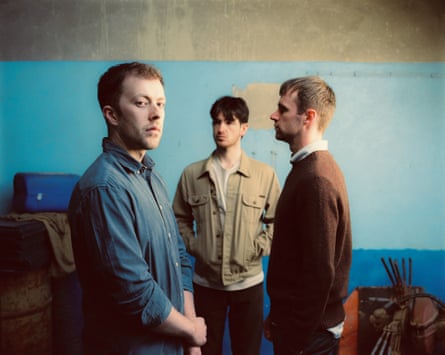
No dials were moved until St Patrick’s Day, when for some reason – perhaps its visceral Irishness, perhaps its mention of green and white – the song began to feature in a series of “get ready with me” videos posted on TikTok, primarily by teenage girls. “I remember saying to someone that we’d get a great weekend out of it, but once Paddy’s Day is over, it’s dust,” says Keogh. “And he said: ‘You haven’t thought about this – the hurling’s about to start,’ and the penny dropped. I thought: Oh Jesus Christ, this could be massive.”
The song was written for the people of Killeagh, and has permanently connected the band to the town – their sponsorship of Killeagh’s new under-10s jerseys is testament to that. But it was adopted across the entire county of Cork as it became an anthem for an inter-county season in which the Cork team won the National Hurling League, the Munster Hurling Championship (their regional knock-out competition), and were – according to the bookmakers, their fans, and every expert going – supposed to win the biggest prize of them all, the All-Ireland.
Alas, they capitulated in the second half of the final last Sunday and let a six-point lead become a 15-point loss to Tipperary. But on their way there, the song expanded its zone of endearment from Killeagh, to Cork, to everyone in Ireland who’d ever been involved with a GAA club, to seemingly just about everyone in Ireland.
after newsletter promotion
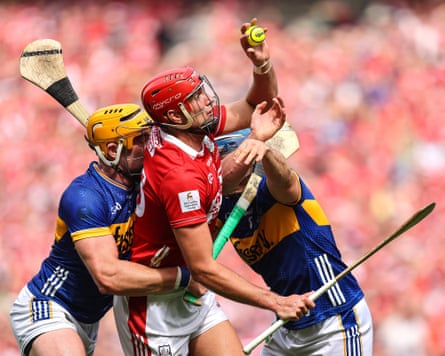
Dr Sandra Joyce and Dr Róisín Ní Ghallóglaigh, who lecture in traditional Irish music at the University of Limerick, attribute the song’s success to an alchemical blend of factors. Beyond the timing and TikTok virality, Killeagh has a certain musical familiarity: it employs phrasings typical of Irish traditional music, with a verse’s second line ending on a minor note before resolving itself on a major one, for example. There’s the enormously singable chorus – “any eejit can sing la la la la,” points out Joyce – and its evocation of an aspect of Irish life, the community-anchoring GAA club, that so many people either participate in or feel nostalgia for.
Joyce says that although she initially thought the song “a bit stereotypical”, she’s found herself singing it around the house and would “bet my bottom dollar that it’ll be sung at [folk] singing sessions around the country.” Ní Ghallóglaigh’s first words are “what a great song!”, and thinks Killeagh is “a modern addition to the Irish folk canon. 100%”. Joyce agrees.
When I tell the band this, they’re gobsmacked. Keogh says he always thought of Ireland’s canon of folk ballads as a fixed entity, not something anyone could hope to add to. I ask him if adding to it is, more than streams or venue bookings or TikTok fame, the ultimate success for Kingfishr.
“For me, personally,” he says, “success is being in the middle of a crowd of people and singing it with everyone, grabbing on to the lads next to you and looking at the people around you and thinking: you’ll always remember this. I think that’s what sport is, and what music is. People are absolutely crying out for that: being part of something bigger than yourself. Being part of a fucking team.”

.png) 3 months ago
38
3 months ago
38
